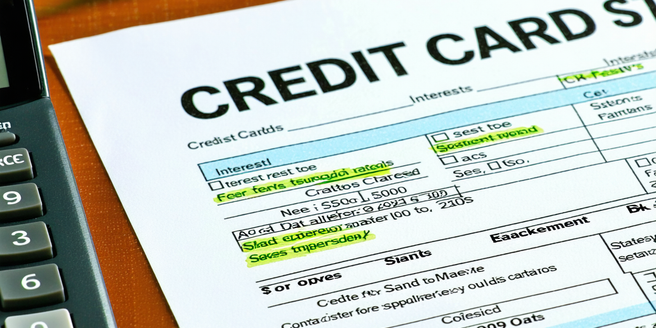
Understanding Bad Credit Loans
| Definition | Characteristics | Common Types |
| Loans offered to individuals with a low credit score. | Higher interest rates. | Personal loans. |
| Offered by specialized lenders. | Lower borrowing limits. | Secured loans. |
| Can aid in improving credit if paid on time. | More stringent repayment terms. | Credit card consolidation. |
| May require a co-signer. | Risk of default is higher. | Auto refinancing loans. |
| Often used for debt consolidation. | Tailored for credit-challenged borrowers. | Cash-out refinancing. |
Why Refinance a Bad Credit Loan?
Refinancing a bad credit loan can provide several key benefits for borrowers. Firstly, it offers the opportunity to secure a lower interest rate, which may result in reduced monthly payments and less interest paid over the life of the loan. This can lead to significant financial savings. Secondly, refinancing can help extend the loan term, allowing for more manageable payments spread over a longer period. Borrowers can also switch from a variable to a fixed interest rate, providing more predictability in budgeting. Additionally, refinancing can be an opportunity to remove a co-signer from the loan. By improving credit standing over time, borrowers may qualify for better terms and conditions, thus enhancing their overall financial health. Ultimately, refinancing can be an essential step toward improving one’s credit profile and achieving long-term financial goals.
Eligibility Criteria for Refinancing
When considering refinancing for a bad credit loan, understanding the eligibility criteria is crucial. Lenders will typically assess factors such as the borrower’s current credit score, which must generally demonstrate some improvement or stability since the original loan was secured. Additionally, lenders will review income documentation to ensure the borrower has the means to meet the payment obligations of the refinanced loan. Employment history and stability can also play a significant role, as lenders prefer a consistent employment record. Equity in any collateral that might back the loan, like a car or home, can also impact eligibility. Moreover, lenders may require a minimum period since the original loan was taken out, indicating a responsible repayment history. Addressing these criteria effectively can improve the likelihood of securing a favorable refinancing deal that aligns with one’s financial needs and goals.
Fixed vs. Variable Interest Rates
Choosing between fixed and variable interest rates is a pivotal decision when refinancing a bad credit loan. A fixed interest rate remains constant throughout the term of the loan, offering the borrower predictability in monthly payments and aiding in long-term financial planning. This stability is particularly beneficial during times of rising interest rates. Conversely, a variable interest rate can fluctuate over time, usually tied to an index or benchmark rate. While a variable rate might initially be lower than a fixed rate, it carries the risk of increasing unexpectedly, potentially raising the borrower’s payment obligations. Deciding between the two often depends on a borrower’s financial situation, risk tolerance, and market conditions. Borrowers looking for stability and long-term payment consistency might lean towards a fixed rate, whereas those willing to take calculated risks for possibly lower initial costs might consider a variable rate.
Top Lenders for Bad Credit Refinancing
Finding the right lender is a crucial step in refinancing a bad credit loan. Various financial institutions specialize in providing refinancing options to borrowers with less-than-perfect credit profiles. Start by exploring online lenders like Avant and LendingClub, known for offering competitive rates and flexible terms tailored to the needs of credit-challenged customers. Credit unions can also be a viable option, often providing lower rates and personalized service to their members. Traditional banks like Wells Fargo or Capital One might have specific programs aimed at loan refinancing, helping to cater to individuals seeking better terms and conditions. Additionally, specialized bad credit lenders focus exclusively on supporting borrowers managing credit challenges. Each lender will have different criteria, personalized advice, and suitable terms, so it’s essential to compare offers, understand the fine print, and choose a lender that aligns with your refinancing goals.
Steps to Improve Credit Before Refinancing
Improving your credit score before refinancing a bad credit loan can significantly impact the terms you’re offered. Start this process by reviewing your credit report for any errors or inconsistencies that might negatively affect your score. Addressing these mistakes can lead to immediate improvements. Paying down existing debt, particularly revolving credit like credit card balances, can boost your credit utilization ratio, which is a key factor in your score calculation. Establishing a history of timely payments on all existing debts for several months before applying to refinance will further showcase your creditworthiness. Keeping credit inquiries to a minimum during this period is also advisable, as frequent checks can negatively impact your score. Finally, consider seeking guidance from credit counseling services to develop a clear strategy to improve your credit standing efficiently. Taking these steps diligently can lead to better refinancing opportunities with favorable terms.
Documents Needed for Refinancing Application
Preparing the necessary documents for your refinancing application is an essential step in the process. Firstly, you’ll need to provide recent pay stubs or proof of income, such as tax returns, to verify your financial stability and ability to repay the loan. Lenders will also require your credit report, highlighting your credit history and current score, which plays a significant role in your refinancing terms. Documentation of your current loan, such as the original agreement and a recent statement, will be necessary to outline your existing obligations. Prepare identification like a driver’s license or passport for personal verification. If you have collateral for the loan, such as a car or home, proof of ownership and an appraisal might be required. Having all these documents ready will streamline the application process, reduce potential delays, and improve your chances of securing favorable refinancing terms.
Evaluating Loan Terms and Conditions
Thoroughly evaluating the terms and conditions of a refinancing offer is critical to ensure it aligns with your financial goals. Start by examining the interest rate and whether it’s fixed or variable, as this determines your repayment cost over time. Assess any associated fees; some lenders may charge origination, application, or early repayment fees, which can affect the overall cost of refinancing. Pay attention to the loan term, as this influences both monthly payment size and the total interest paid over the loan duration. It’s also vital to understand any prepayment penalties, as these might restrict your ability to pay off the loan early. Reflect on the flexibility of payment terms; having options for payment holidays or adjusting repayment schedules can be beneficial. Reading the fine print and seeking clarification on complex terms before committing ensures that the refinancing deal supports your long-term financial well-being.
Common Mistakes to Avoid When Refinancing
Avoiding common mistakes when refinancing a bad credit loan can lead to better outcomes and fewer financial pitfalls. Firstly, do not rush the decision; take the time to thoroughly compare multiple lenders and their offers. Avoid focusing solely on the interest rate; consider the overall loan terms, including fees and repayment period. It’s crucial to not ignore your credit score before applying; improving your credit can secure more favorable terms. Refrain from taking on new debt before refinancing, as this can affect your credit profile negatively. Make sure to clarify any fees, such as prepayment penalties or closing costs, that might increase the loan’s total cost. Lastly, don’t neglect to read the fine print; understanding all terms and conditions ensures that the new loan aligns with your financial objectives and avoids unexpected obligations later.
The Impact of Loan Refinancing on Credit Score
Refinancing a loan can have various impacts on your credit score. Initially, applying for refinancing may result in a temporary dip in your score due to credit inquiries from lenders reviewing your credit report. However, successfully refinancing your loan and securing better terms can positively impact your credit over time. A lower interest rate may lead to more manageable payments, reducing the risk of missed payments or defaults, which are detrimental to your credit score. Transitioning to a loan with more advantageous terms can help demonstrate improved creditworthiness and financial management skills. Additionally, refinancing can positively affect your credit utilization ratio if it involves paying off revolving credit or consolidating several debts. Over the long term, consistently meeting your new loan obligations can rebuild your credit score and improve your financial profile, opening doors to better borrowing opportunities.

